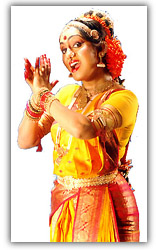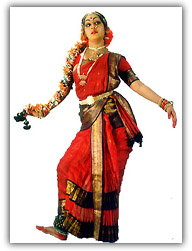By Umamaheswari Vepachedu, MA, MPhil, BEd
Anjaneyulu Kundurti is well known as
vachanakavitha pitamahudu
(father of prose). He started the prose movement in Andhra Pradesh. He was
born in a
Brahmin
family on 16th December, 1922 in Kotavaripalem, in Guntur District. When he
was in Vinukonda, Joshua Gurram was his Telugu teacher. From 1936-41, he
studied in Vijayawada Muncipal High School. He started writing poetry in
1937. He was a student of Satyanarayana Viswanadha at SRR College, Vijayawada.
He studied BA at Andhra Christian College, Guntur.
Anjaneyulu established Navyakala Parishad in Narsaraopeta. During this
time, he was attracted towards Communism. He worked as an English teacher
and Principal at a Residential School in Devendrapadu village. Later, he
worked in a tobacco market in Guntur. In 1956, he joined the Information
and Broadcasting Department in Kurnool as a translator. Later, he was transferred
to Hyderabad. In 1967, he started Fervor's Front and gave away prizes to
the best prose writers. He retired from service in 1977.
His works include
souptikam, rasadhuni, amavaasya, naa prEyasi, nayaagara,
telaMgaaNa, daMDi yaatra, Asha, nagaraMlo vaana, naaloni vaadaalu, haMsa
egiripoyiMndi, teera nenu kaasta egiripoyaaka, mEghamaala, idi naa jeMDa,
kuMdurti peeThikalu, kuMdurti vyaasaalu, batuku maaTa etc. At a time
when prose was not considered as literary work, he started emphasizing on
prose. He felt poetry is an iron curtain between the writer and the reader.
He declared that poetry was the past and prose was the present.
He asked writers to come out of chains of the language of poetry. He said
he respected poetry but, there should always be new experiments to enrich
the literature. He argued that the style and language of literary work should
be understood by the common man, Marxism is to be reflected in the writings,
and Sanskrit and English words are to be rejected. He used new words like
udayala ugguginnelu, jeevitapu rookalu, padavula smasanam etc.
He felt that if given a chance, everybody is ready for economic exploitation.
He expressed this feeling in
nagaraMlo vaana.
Moved by Mahatma Gandhi's Salt Satyagraha, Kundurthi wrote
daMDi yaatra.
telaMgaaNa was written against the inhuman deeds of Nizam Nawab.
He wrote the memoir
haMsa egiri poyiMdi in memory of his wife Sundaramma.
Unlike many Marxist poets, he never showed hatred and anger towards anything
and did not propose the destruction of heritage. He said, "it's good to
be proud of our past, but its bad to cling on to the past."




